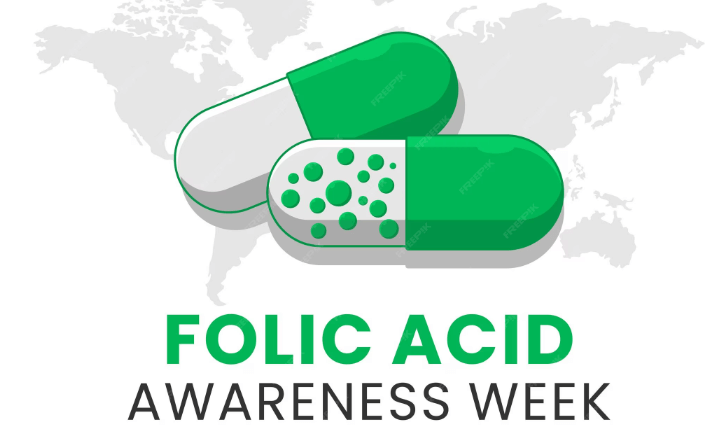The Ultimate Guide to Vitamin A: Benefits and Sources

Table of Contents
- Introduction to Vitamin A: Overview and Importance
- Health Benefits of Vitamin A: A Closer Look
- Dietary Sources of Vitamin A: What to Include in Your Diet
- Vitamin A Deficiency: Signs and Symptoms to Watch Out For
- Dosage and Safety Guidelines: How to Get the Right Amount of Vitamin A
Introduction to Vitamin A: Overview and Importance
Welcome to the ultimate guide on Vitamin A, a vital nutrient that plays a crucial role in maintaining overall health and well-being. In this section, we will provide you with an overview of this essential vitamin, along with its importance for the body.
Vitamin A is a fat-soluble vitamin that exists in two primary forms: Retinol and Beta-carotene. Retinol is commonly found in animal sources, while beta-carotene is primarily derived from plants. This vitamin serves multiple functions in the body, supporting various biological processes necessary for growth, development, and overall immune system function.
One of the key benefits of Vitamin A is its role in promoting good eyesight. It plays a vital part in the formation and maintenance of healthy eyes, ensuring optimal vision, especially in low-light conditions. Additionally, Vitamin A aids in the prevention of night blindness and helps maintain the integrity of the cornea, which is the outermost layer of the eye.
Apart from its visual benefits, Vitamin A plays a crucial role in promoting a healthy immune system. It acts as an antioxidant, protecting the body from harmful free radicals that can cause damage and contribute to various diseases. Furthermore, it supports the production and function of white blood cells, which are essential for fighting off infections and maintaining overall immune health.
Vitamin A also contributes to the growth and development of various bodily tissues. It is particularly important in the development of bones and teeth, making it essential for children’s growth. Moreover, this vitamin is involved in the maintenance of healthy skin cells, promoting a youthful appearance and supporting skin health.
To ensure you meet your daily Vitamin A requirements, it’s important to incorporate a variety of food sources into your diet. Some excellent sources of Vitamin A include liver, fish oil, eggs, and dairy products. For those following a plant-based diet, incorporating foods like carrots, sweet potatoes, spinach, and kale can provide an abundant supply of beta-carotene. It’s always important to maintain a balanced diet to ensure you’re getting sufficient amounts of this crucial vitamin.
- Promotes good eyesight and prevents night blindness
- Supports a healthy immune system and acts as an antioxidant
- Aids in growth, development, and maintenance of bodily tissues
- Important for healthy skin and a youthful appearance
- Sources of Vitamin A include liver, fish oil, eggs, carrots, and leafy greens
In conclusion, Vitamin A is a vital nutrient that offers numerous benefits for overall health. From supporting eye health and immunity to promoting proper growth and development, this vitamin is essential for maintaining optimal well-being. By incorporating Vitamin A-rich foods into your diet, you can ensure that your body receives this important nutrient and enjoy the many advantages it provides.
Health Benefits of Vitamin A: A Closer Look
Vitamin A is an essential nutrient that plays a crucial role in maintaining good health and supporting various bodily functions. This fat-soluble vitamin is known for its unique ability to enhance vision and promote healthy skin, but its benefits extend far beyond that. Let’s take a closer look at some of the key health benefits of vitamin A:
- Improved Vision: Vitamin A is essential for good eyesight and maintaining optimal vision. It helps to prevent night blindness and supports overall eye health. Adequate intake of vitamin A is especially important for maintaining clear vision in low light or darkness.
- Healthy Skin: Vitamin A is often lauded for its role in promoting healthy skin. It aids in the production and maintenance of the skin’s outermost layer, helping to keep it smooth, supple, and moisturized. Additionally, vitamin A supports the healing process of skin wounds and contributes to a youthful appearance.
- Strong Immune System: Vitamin A plays a vital role in maintaining a strong immune system, allowing it to effectively ward off infections and illnesses. It aids in the production and function of white blood cells, which are crucial for fighting off pathogens and preventing the onset of diseases.
- Optimal Bone Health: Adequate vitamin A intake supports the development and maintenance of strong bones. It assists in the production of osteoblasts, the cells responsible for bone formation. By ensuring sufficient vitamin A levels, you can help reduce the risk of bone-related conditions such as osteoporosis.
- Cellular Growth and Development: Vitamin A is essential for the growth and development of various cells within the body. It supports the normal development of embryonic cells during pregnancy and contributes to the healthy growth of tissues, including the heart, lungs, and kidneys.
It’s important to maintain an optimal intake of vitamin A to fully reap its health benefits. While it can be obtained from a variety of sources, including animal products such as liver, fish, and dairy, and plant-based sources like carrots, spinach, and sweet potatoes, it may be necessary to supplement your diet if you’re not getting enough through food alone.
However, it’s crucial to note that excessive intake of vitamin A can have adverse effects. Always consult with a healthcare professional to determine the appropriate dosage and ensure you’re meeting your specific needs.
Dietary Sources of Vitamin A: What to Include in Your Diet
Vitamin A is an essential micronutrient that plays a crucial role in maintaining good vision, supporting immune function, and promoting healthy skin. To ensure you’re getting an adequate amount of this vitamin, it’s important to include a variety of vitamin A-rich foods in your diet. Here are some excellent dietary sources to consider:
- 1. Liver: Liver, especially beef liver, is an incredibly rich source of vitamin A. Just a small serving of liver can provide you with more than your daily recommended intake of this nutrient.
- 2. Fish: Certain types of fish are excellent sources of vitamin A. Canned fish like salmon and mackerel, as well as fish oils, contain high levels of this vitamin.
- 3. Dairy Products: Milk, cheese, and yogurt are not only great sources of calcium but also provide a good amount of vitamin A. Opt for low-fat or non-fat options to keep your saturated fat intake in check.
- 4. Eggs: Egg yolks contain vitamin A, so incorporating eggs into your diet is a great way to increase your intake of this micronutrient. However, be mindful of your overall cholesterol intake if you have specific dietary restrictions.
- 5. Orange and Yellow Fruits and Vegetables: Carrots, sweet potatoes, apricots, mangoes, and papayas are rich in beta-carotene, a precursor to vitamin A. Including these brightly colored fruits and vegetables in your diet can help boost your vitamin A levels.
- 6. Leafy Greens: Dark leafy greens like spinach and kale are not only packed with other essential nutrients but also contain vitamin A. Incorporate them into your salads, smoothies, or cooked dishes to enjoy their health benefits.
- 7. Fortified Foods: Some food products, such as cereals and margarine, are fortified with vitamin A. Check the labels for added nutrients and incorporate these fortified products into your diet as an additional source of vitamin A.
Remember, it’s always best to obtain your vitamins and minerals through a well-balanced diet rather than relying solely on supplements. Including these vitamin A-rich foods in your meals will not only help you meet your daily requirements but also provide you with a wide range of other essential nutrients for optimal health.
Vitamin A Deficiency: Signs and Symptoms to Watch Out For
Vitamin A is an essential nutrient that plays a crucial role in maintaining our overall health. It is important for proper vision, a strong immune system, healthy skin, and reproductive health. While vitamin A deficiency is not commonly seen in developed countries, it is still a significant public health issue in many parts of the world.
- Impaired Night Vision: One of the early signs of vitamin A deficiency is difficulty seeing in low light conditions. Poor night vision or prolonged time to adjust to darkness can be an indication of insufficient vitamin A levels in the body.
- Dry and Rough Skin: Vitamin A plays a crucial role in maintaining the health and integrity of our skin. A deficiency can lead to dry, rough, and flaky skin. It may also result in the development of follicular hyperkeratosis, where the hair follicles become clogged, leading to rough bumps on the skin surface.
- Frequent Infections: Vitamin A is vital for a robust immune system. Insufficient levels of vitamin A can weaken the immune response, making individuals more susceptible to infections. Recurrent respiratory infections, such as colds, flu, and respiratory tract infections, may be a sign of vitamin A deficiency.
- Poor Growth and Delayed Development: In children, a deficiency in vitamin A can lead to stunted growth and delayed development. It can affect bone growth, impair the functioning of organs, and hinder brain development, leading to cognitive and motor delays.
- Compromised Eye Health: Vitamin A is essential for maintaining proper eye health. Inadequate vitamin A levels can result in a condition called xerophthalmia, which can cause dryness of the eyes, corneal ulcers, and even blindness in severe cases.
If you or someone you know experiences any of these symptoms, it is important to consult a healthcare professional for evaluation. Vitamin A deficiency can be diagnosed through blood tests, and treatment typically involves supplementation and dietary changes.
Prevention is key when it comes to maintaining optimal vitamin A levels. Including foods rich in vitamin A, such as leafy green vegetables, carrots, sweet potatoes, eggs, and dairy products, can help ensure an adequate intake. In some cases, dietary supplementation may be necessary, but it should always be done under the guidance of a healthcare professional.
Remember, while vitamin A deficiency is a significant concern in certain parts of the world, it can be prevented and managed through proper nutrition and medical care.
Dosage and Safety Guidelines: How to Get the Right Amount of Vitamin A
Vitamin A is an essential nutrient that plays a crucial role in various bodily functions, including vision, immune system health, and cell growth. While it offers several benefits, it is important to understand proper dosage and safety guidelines to avoid any potential risks or deficiencies. Here is a comprehensive guide to help you ensure you are getting the right amount of vitamin A:
- Daily Recommended Intake: The recommended daily intake of vitamin A varies depending on age and gender. For adult men, it is typically 900 mcg (micrograms) per day, while adult women require around 700 mcg per day.
- Sources of Vitamin A: There are two main types of vitamin A: retinoids (found in animal products) and carotenoids (found in plant-based foods). Good sources of retinoids include liver, fish oil, eggs, and dairy products. Carotenoid-rich foods include carrots, sweet potatoes, spinach, kale, and papaya.
- Supplementing with Vitamin A: In some cases, individuals may require supplements to meet their vitamin A needs. It is important to consult with a healthcare professional before starting any supplementation. Excessive vitamin A intake can lead to toxicity symptoms like nausea, dizziness, or even potentially fatal complications.
- Safety and Precautions: Pregnant women should be cautious with their vitamin A intake as high doses can harm the fetus. It is advisable to consult with a healthcare provider to determine the appropriate dosage. Additionally, individuals with certain medical conditions, such as liver disease or diabetes, should also consult their doctors before taking vitamin A supplements.
- Balanced Diet for Optimal Vitamin A: The best way to ensure you are getting the right amount of vitamin A is to maintain a well-balanced diet that includes a variety of nutrient-rich foods. Consuming a diverse range of fruits, vegetables, lean meats, and dairy products can help you meet your vitamin A requirements naturally.
Remember, while vitamin A offers numerous health benefits, it’s essential to follow dosage and safety guidelines to maintain overall well-being. Monitoring your intake and seeking professional advice when necessary will help you maximize the advantages offered by this vital nutrient.


























